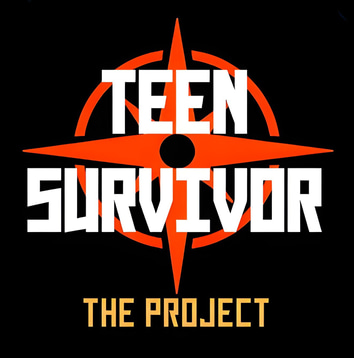Learning from History’s Epic Fails
From ancient disasters to modern crises, history teaches us why prepping is not paranoia. Learning from History helps us understand why prepparing for the hard times ahead is the ultimate hack
STORIES AND INSPIRATION
5/8/20242 min read
History Encourages Being Ready
History is like a big, messy scrapbook of people either nailing preparedness or totally fumbling it. The global pandemic game was dominated by nations like South Korea and New Zealand, which kept death rates low and returned to stadiums and concerts well ahead of the rest of the world.. Meanwhile, other places were stuck in an endless loop of "are we reopening yet?". People in Ukraine never thought they would go to war with Russia, a friendly state, yet there they stand fighting against one of the world's largest armies.
And who can forget Hurricane Katrina (2005)? It's still the gold standard of "how not to be ready," proving that poor planning can haunt you for decades.
History’s Hall of Fame (or Infamy) includes plenty of facepalm-worthy examples:
Pompeii: "Maybe living next to a volcano isn’t the best idea?" (79 AD)
Rome getting sacked by the Visigoths: neglected infrastructure = epic fail (410 AD)
The Maya Civilization: drought meets bad planning = the end (circa 800 AD)
The Black Death: when ignoring hygiene takes down half of Europe (1347)
The Eastern Roman Empire: The Lanisters of the Mediterranean, always on top, always in the spotlight, and always flexing their muscles. Arrogance = the end (1453)
Titanic: "Unsinkable," they said. "No need for extra lifeboats," they said. (1912)
Chernobyl: where cutting corners goes nuclear (1986)
Indian Ocean Tsunami: no warning systems = devastation (2004)
Haiti Earthquake: lack of preparedness meets nature's fury (2010)
Militaries have been shouting "be prepared!" for centuries. Sun Tzu, the OG strategy guru, said it best in The Art of War: "He will win who, prepared himself, waits to take the enemy unprepared." (Translation: Get ready or fail.)
And it’s not just war or disasters. Even Aesop—yes, the fable guy from Greece —was on team preparedness with his classic fable: "The Ants & the Cricket." Moral of the story? Don’t be the cricket - be a small Ant.
Is Prepping Pointless?
Here is the thing: prepping isn’t just for the doomsday crowd hoarding canned beans in bunkers. It’s also for regular people who don’t want to panic-buy toilet paper when disaster strikes. Some people stock up for full-on zombie apocalypses (yes I am looking at you, billionaires with luxury bunkers), while others just keep a stash of extra spaghetti and canned soup for hurricane season. Both are valid, and neither requires you to trade in your entire social life for a stash of MREs.
The greatest myth? that you must choose between enjoying life and preparing.
Spoiler alert: you can do both. Prepping doesn’t have to be a full-time job. Spend a few hours getting the basics together, and you’re good for months—even years.
And let’s talk about probabilities.
The "it probably won’t happen" argument doesn’t hold water. Because here’s the deal: "probably won’t" adds up over time to "yeah, it’s gonna happen eventually." Preparation is math, not paranoia..
That’s why we say, "Prep your way." Your preparedness should work for you, not the other way around. Want to stash a bug-out bag? Cool. Prefer a storm kit and some water jugs? Awesome. The point is, it’s your call. You decide how much is enough.
By now, you’ve seen the disasters, the logic, and the possibilities. The choice to prepare? That one’s all yours.
I hope you don’t decide to be the cricket.
Teen Survivor Project
Cheat code for young preppers
© 2024. All rights reserved.
